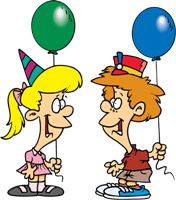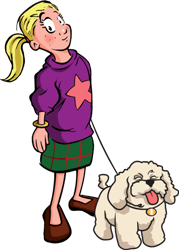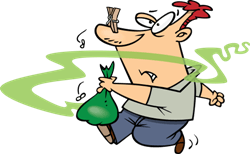|

 Write Date : 17-10-06 08:46
Write Date : 17-10-06 08:46
|
The Verb, 'to be'
|
 |
|
Writer :
관리자
 View : 3,016
|
The verb "to be" also has many different meanings.
The following are the most important ones.
The meanings
of the verb "to be"
1.
Exists.
There is a rabbit inside.

There is
nothing in the fridge.

There is a
problem...

There is a
difference.

2.
Happens.
The party is tonight.

The meeting is
down the hall.

Come, it is
over there.

3.
Located.
She is at school.

She is home.

The food is
on the table.

4.
Shows identity.
She is Alexis and this is Bob.

He is a
singer.

He is not a singer.

5.
Shows a quality.
She is beautiful.

It is
stinky.

This is
dangerous.

The verb
"to be" as an auxiliary verb
(helping verb)
Auxiliary verbs are verbs that are used together with the main
verb of the sentence to express the action or state.
Main
verb + auxiliary verb = complete idea
The verb "to be" can be used as an auxiliary
verb to express ongoing
(continuing) actions.
For example:
Anna is eating a
sandwich.
"Eating" = the main verb.
"Is" = an auxiliary (helping) verb.
"is eating" (a complete idea) = the eating is IN PROGRESS.
More examples:
Kayla is walking
home with her friends.
Justin and Ethan are
watching
a movie.
I am trying to
get some sleep.
The verb "to be"
in passive sentences
The verb "to be" is used together with the third form of the verb (V3)
in passive sentences.
For example:
ACTIVE: I eat an apple.
PASSIVE: The apple is
eaten.
"Eaten" = the main verb (in the third form – V3).
"Is" = an auxiliary (helping) verb.
"is eaten" (a complete idea) = the subject of the sentence (the apple)
is affected by the action.
More examples:
People buy cars. --> Cars are
bought.
Someone turned on the light. --> The light was turned on.
He will clean the house. --> The house will be cleaned.
Progressive
Forms of the verb "to
be"
The
progressive form of the verb "to be" is "being."
This means the action is ongoing
(continuing).
Examples:
The little boy is being
naughty.
She was being
rude, but then she apologized.
They are being
tricked.
Perfect
Forms of the verb "to be"
The
perfect form of the verb "to be" is "been."
This means the action is complete
(finished).
Examples:
The little boy has been
naughty.
She has been
rude, but now she apologizes.
They have been
tricked.
|
|
 |